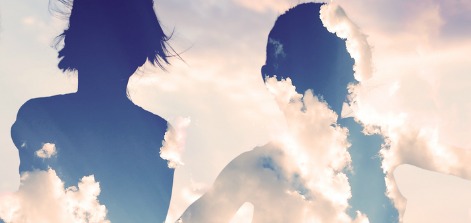When Cathy Rentzenbrink's brother suffered a terrible accident as a teenager, she didn't think there could be anything worse than death. The eight years that followed taught her that, perhaps, we sometimes struggle too hard against it.
As a society, we've become used to thinking of death as the worst possible thing that can happen. Certainly when I sat next to my brother's bed in intensive care holding his hand and watching the monitors, the only thing I was worried about was that he might die.
I was 17 then, and only thought of life and death in binary terms. I hadn't even ever known a person come to the end of their life slowly. My Dad's parents died when he was a boy, my maternal grandad died of a heart attack, and for my granny it was only a few short weeks between her feeling not quite right and dying of pneumonia in hospital. I had known three young men who had died suddenly and tragically. That my was world view. People lived until they died. There was nothing in between.
My brother didn't die but he never recovered consciousness and remained in a vegetative state for eight years. As some point - about halfway, I think - I realised that it would have been better for him and everyone who loved him if he'd died on the night he was knocked down. I came to see that perhaps the cruelest thing about death is when you long for it to come and put an end to the non-life of your loved one.
And perhaps we could ask ourselves is death really so bad? Previous generations were more accepting about the notion of dying. What is it about us that makes us so fearful of it that we'll keep people suspended in awful states.
It's a terrible thing, profoundly philosophically and emotionally difficult to be in the presence of the body of someone you love but who is not there. It's a burden that more and more of us will face.
This is all new, this ability we have to keep people alive by putting a feeding tube into them. If my brother had been knocked over 20 years before, he wouldn't have survived.
What gets killed, in a situation where death is delayed, is the memory and essence of the person who existed before. I had lost my bright and funny brother, he was buried under the eight years of non-life. Only by writing about him all these years later have I been able to get him back, to hear his voice and see his smile.
I don't have answers or recommendations, really. It's not as simple as that. The legal, ethical and moral issues that surround all this are complex and I don't feel I have the expertise to make pronouncements on what should be. But I do think we need a collective conversation.
And perhaps we could ask ourselves is death really so bad? Previous generations were more accepting about the notion of dying. What is it about us that makes us so fearful of it that we'll keep people suspended in awful states. There are fates far worse than death. I find I envy the Victorians who didn't have our medical capabilities but knew who to grieve. If my brother had died on the night he was knocked down and I'd worn black for a year, I think I'd have done a far better job of learning to live without him.
Cathy's new book The Last Act of Love is published by Picador and available from Amazon now.



